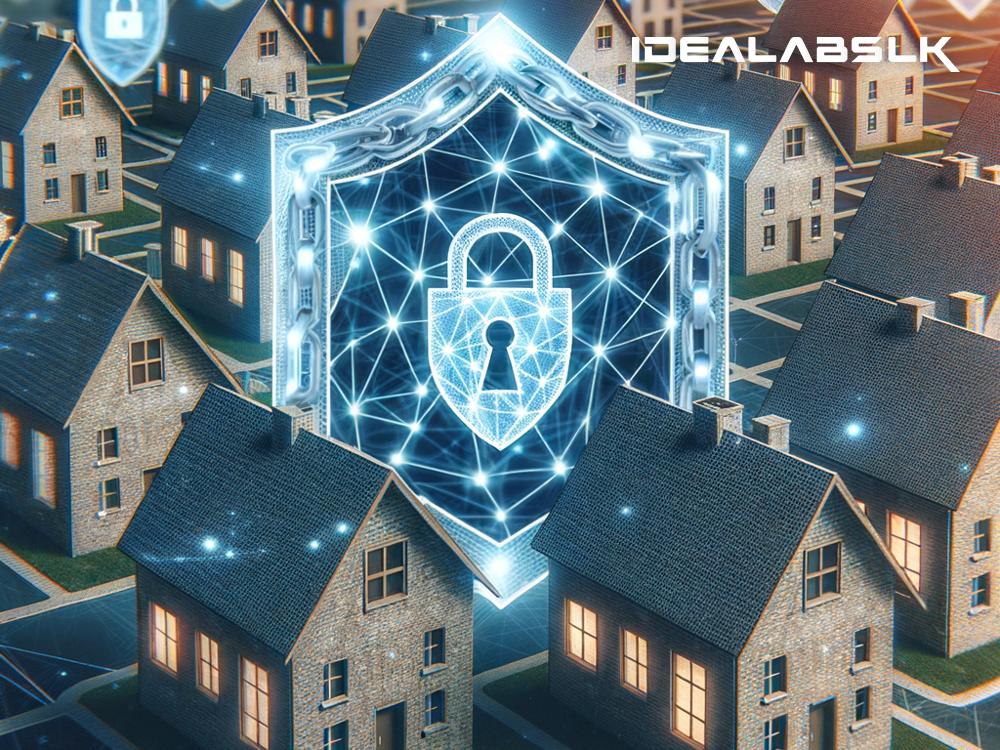Title: The Future of Property Transactions: How Blockchain is Revolutionizing Real Estate Title Insurance
In the ever-evolving world of technology, blockchain is a term that's been buzzing around different industries, promising to transform the way we do things. The real estate sector, known for its traditional processes, is no exception. One particular area within real estate that's ripe for innovation is title insurance. Let’s dive into a simplified exploration of how blockchain technology is setting the stage for a revolution in real estate title insurance.
Understanding Title Insurance in Real Estate
Before we delve into the blockchain aspect, let’s break down what title insurance is. Imagine buying your dream home, only to find out someone else claims ownership of it, or there are outstanding liens or legal issues tied to the property. This is where title insurance comes into play. It protects buyers (and lenders) from potential future losses arising from these issues, ensuring that the property title is clear and the transfer of ownership is smooth.
Traditionally, the process of validating and insuring a title is cumbersome, manual, and paper-heavy. It often involves a significant amount of time digging through public records and documents to trace the property's history and ensure everything is in order. This is not only time-consuming but also leaves room for human error.
Enter Blockchain: Simplifying Complexity
Blockchain technology, at its core, is a decentralized ledger that records transactions across multiple computers in such a way that the record cannot be altered retroactively. This characteristic makes it a superb tool for creating a transparent, efficient, and secure system for any kind of transaction, including real estate title transactions.
Here's how blockchain is beginning to transform the landscape of real estate title insurance:
1. Streamlining Processes and Reducing Timeframes
With blockchain, the entire history of a property—from its first construction to its latest sale—can be securely recorded and easily accessed in real-time. This could drastically reduce the time it takes to conduct title searches, cutting down weeks of work into just a few clicks. Buyers, sellers, and insurers all stand to benefit from this increased efficiency.
2. Enhancing Security and Transparency
One of blockchain’s key benefits is its security. Since records on a blockchain are immutable, meaning they cannot be altered once entered, the integrity of a property's title history is preserved. This significantly reduces the risk of fraud, one of the critical concerns in the title insurance industry. The transparency of blockchain ensures that all parties involved have access to the same information, fostering trust in the process.
3. Cost Reduction
By streamlining the process and cutting down on the need for extensive manual labor and paperwork, blockchain can also lead to significant cost savings. These savings could be passed down to consumers in the form of reduced premiums for title insurance, making the overall process of buying or selling property more affordable.
4. Innovations in Title Insurance Policies
The immutable and transparent nature of blockchain could lead to new forms of title insurance policies that are more dynamic and tailored to individual properties and their specific histories. This could provide more comprehensive protection for owners and lenders alike.
Challenges and Considerations
While the potential of blockchain in transforming real estate title insurance is immense, there are challenges ahead. These include regulatory hurdles, the need for industry-wide standardization, and ensuring that the technology is accessible and understandable for all stakeholders involved.
The Path Forward
Despite these challenges, progressive steps are being taken by startups and some forward-thinking companies within the real estate sector to pilot blockchain projects. As these projects develop and prove their worth, we can expect a gradual but significant shift towards blockchain-based processes in title insurance.
Educating stakeholders, refining the technology to suit the unique needs of the real estate industry, and building a regulatory framework that supports innovation while protecting consumers are crucial steps on this path.
Conclusion
The blockchain revolution in real estate title insurance is still in its early stages, but its potential to streamline processes, enhance security and transparency, and reduce costs cannot be overstated. By embracing this technology, the real estate sector can look forward to a future where property transactions are smoother, faster, and more secure. The road ahead is promising, and it’s only a matter of time before blockchain becomes an integral part of how we buy and sell property.

